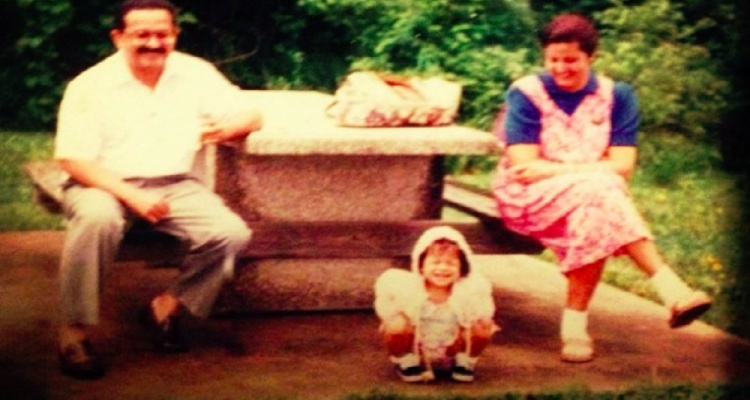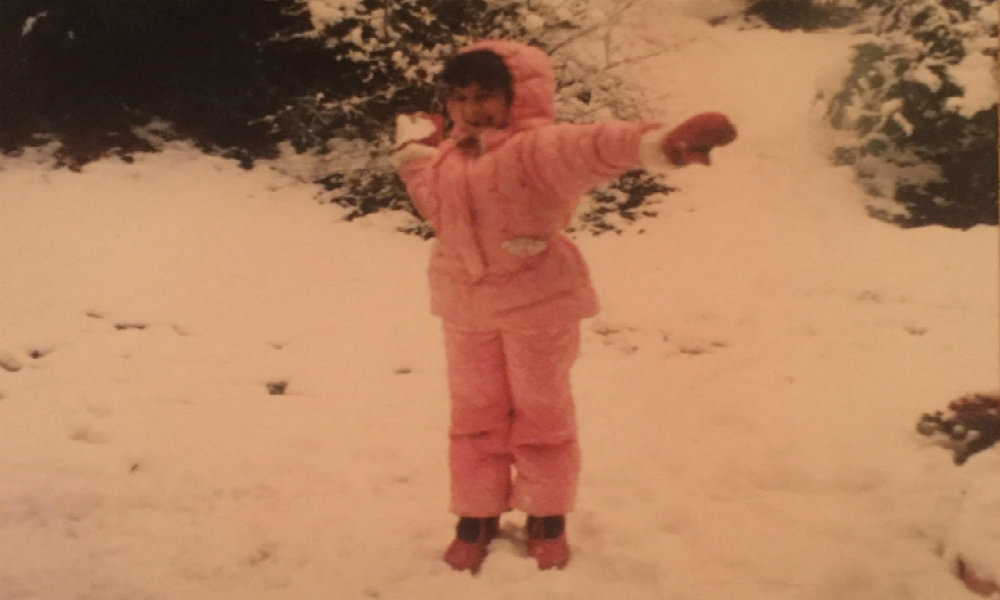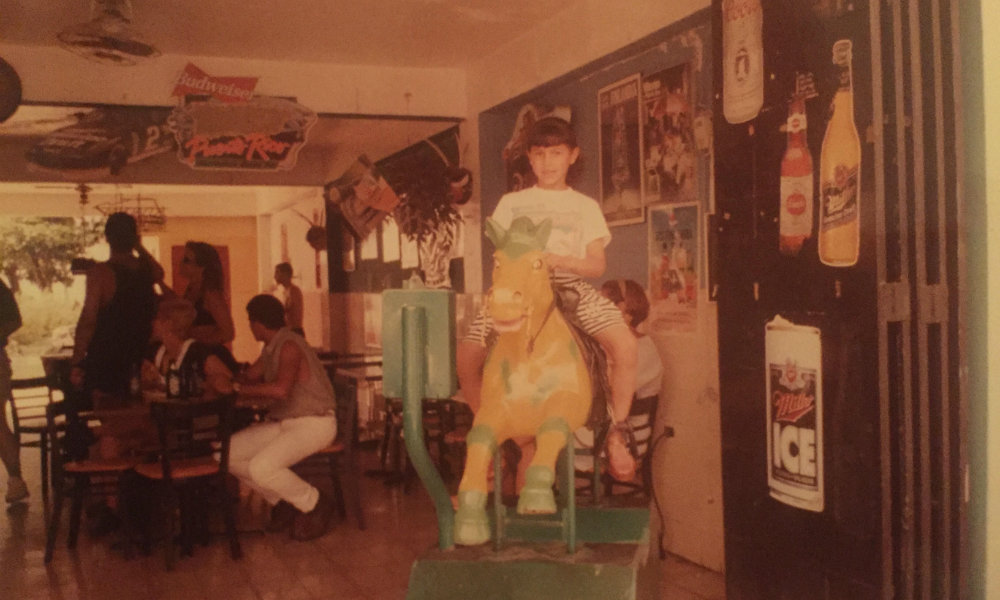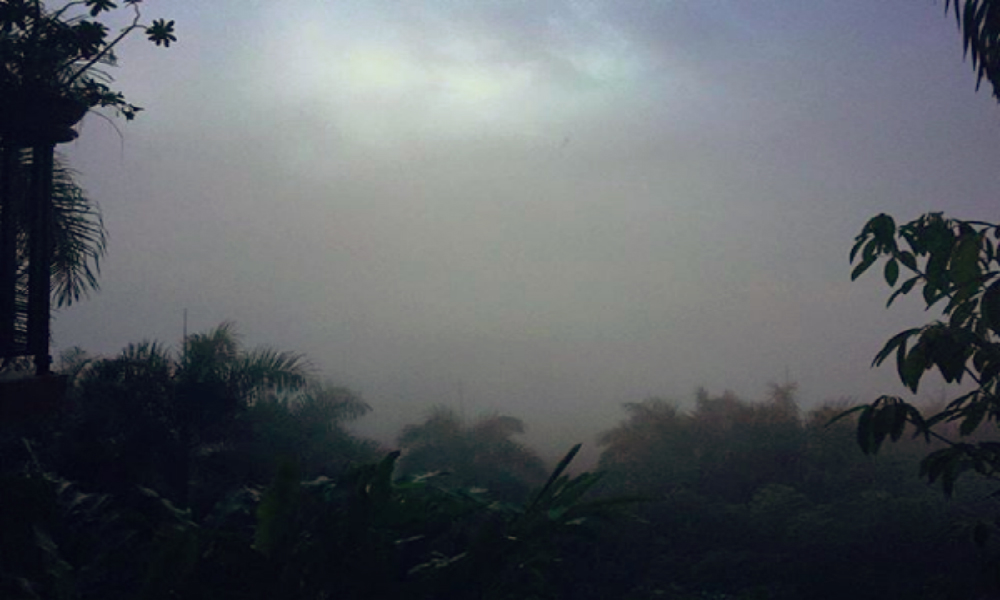The air smells different on the island, the way I imagine the word “green” must smell: humid and vibrant. We’re in the car, windows down, the balmy breeze whipping my curls into a wispy cloud. My face is rosy from excitement, heat or nerves. Probably all three. I touched down in San Juan half an hour ago; now we’re coasting down the highway towards Caguas, Puerto Rico, where my mother grew up and now lives. The wind is salty, thick with the promise of rain and worlds away from the concrete heat of Washington, D.C., the city I’ve chosen to build a home and a community in over the last decade.
I’m back to see my mom, the hostess extraordinaire, the one who takes care of everyone but herself. Over the years she’s surprised us all with endless treats, trips, and parties. Today, I’m surprising her.
I always had trouble reconciling Puerto Rico — the land of peacocks and giant sunflowers — with the other part of my childhood spent in the continental U.S. Stateside during the school year, I alternated travels during breaks to the Dominican Republic, where my paternal grandmother had moved to, and Puerto Rico, where the rest of our family lived. A constant back and forth, ping-ponging with the weightless happiness of childhood but still troubled in a way I was too young to understand.
I spent those school years between Indiana and Massachusetts, following my parents’ career and higher education pursuits. I remember Boston, with its windy days, crab cakes, and waterfronts that were nothing like the warm beaches of the Caribbean. I remember Amherst, where I’d play in the snow bundled up in a thick pink snowsuit. There I learned about comic books, about roller rinks and laser tag. There I learned how to be a gringa who couldn’t remember how to say “sidewalk” or “headband” in Spanish, words my cousins would giggle at when I’d try to pronounce them. To this day, my mother still corrects my misused Anglicisms.
My accent marked me as a member of the Puerto Rican diaspora even before I knew what that term meant. Thanks to the crises the island has faced in recent years, it’s now a ubiquitous phrase in mainstream U.S. news, but Puerto Ricans know the diaspora started over a century ago after the United States acquired the island from Spain in the Spanish-American War. It’s not uncommon these days to hear people in the U.S. say “Nuyorican” to refer to those who have never stepped foot on Puerto Rican soil but whose patronymics can be traced back to the island’s historic family trees. Puerto Ricans have been using that term for decades.
I spent one half of my childhood chasing baby chickens around my grandparents’ mountain-top farm. It was a utopian piece of land surrounded by a rainbow of flora and wild fauna, the city lights stretched outstretched out boundlessly below us. I grew up with sunflowers stretched tall above me, a glittering peacock that roamed the grounds, and an endless supply of hammocks to curl up in with my grandmother. We’d sway and sound out the English words we were learning together from my picture books.
The Continental U.S. so different from the places where I spent my summers that it’s no wonder the Caribbean faded in my thoughts like a dream, a place that didn’t seem to exist outside of the summer or the notoriously long Puerto Rican Christmas season, where whole pigs were roasted in wooden boxes full of red-hot stones and the coquito and parrandas lasted for weeks.
We moved to the island when I was almost 8 years old, a half-formed person with my own thoughts and opinions. Someone who knew two languages but only felt comfortable with one of them. A bystander to island life who wrapped herself in a safety blanket of Disney movies and Harry Potter — an endless parade of English-speaking characters with experiences that only lined up with one half of her life. My closest friends, like me, were fascinated by North American pop culture. We grew up on MTV, McDonald’s, and 90s boy bands.
My grandparents tried to instill in me a love for their culture and history, planning long drives around the island where we’d stop at chinchorros — divey shacks selling cold beer and cheap food — for fried snacks. Drives through Puerto Rico’s winding mountain spine revealed a magical sea made of lush green, untamed and infinitely beautiful. I’d sneak peeks from the back of the car in between chapters of my books before diving back in, always dreaming of being somewhere else.
College was my escape. My mother sobbed when she dropped me off at George Washington University, but I was elated and already imagining my new life. For the next couple of years I’d watch her cry as we said our goodbyes at airports, in cars. Her firstborn, her strange gringa baby. The one who never really shared her same sense of home.
I thought I’d left the island behind, but it didn’t take long before I felt a tug that called to me from that bewitching place, the one where tree frogs sing at night and every one of your senses is constantly, wildly alive. The place where my blood was, where my family waited for me. The first time I told my mother that I missed her, she laughed in disbelief. But the truth was there, hidden in the unexpected catch of my throat and the pit that grew inside my belly whenever a peer thought I said I was “Costa Rican” or couldn’t sing along to the music we’d blasted in those long car rides through the mountains.
Phone calls home became more and more frequent, especially once I graduated and found myself floating in the unknown sea of adulthood, while college friends scattered across the continent to pursue jobs and other degrees.
A few years before my surprise visit, my mom called to tell me my grandfather had been diagnosed with cancer. The news came while I was sitting on the back of a bus in D.C. and sat heavy as a brick in my stomach for the rest of the afternoon. My grandfather had always been an imposing presence in my life: a legendary patriarch who’d doled out strict punishments to his three young daughters turned jovial and silly in his older age. The legend goes that the first time he smiled was when he met me, his first grandchild. Surrounded by women, he referred to us as his reinas and princesas (queens and princesses).
After his diagnosis, my grandfather had good days that, over the years, became heart-wrenchingly bad days. With help from my family, we’d chat on FaceTime. Sometimes he’d recognize my face or voice but more often than not he didn’t. Eventually, he was spending more time in the hospital than at home.
Through it all, my mother was the glue that held everyone together, despite the increasing heaviness I heard in her voice. The surprise trip was born out of a need to say goodbye to my grandfather before he passed, but also out of a desire to be there for my mom in what had been an incredibly difficult time in all of our lives.
My aunt finally pulls up to the office. A secretary I’ve never met waves us inside, bursting with excitement. My mom’s on the other side of a glass door; she looks at me and turns away. A second later recognition dawns on her face. She runs inside and envelopes me in a hug, completely shocked.
The tears appear immediately as she asks over and over again what I’m doing here and how did I even get here? My aunt hands her fistfuls of tissues from the secretary’s desk, and my mom’s still sniffling even as she calms down enough to ask me if I’m hungry because she just brought back lunch. Everyone in the office laughs, partially because of the absurdity of the question posed, but also because of how fitting it is. How Puerto Rican of her.
That’s the moment I know that I’m home.







